
René François Armand "Sully" Prudhomme was a French poet and essayist. He was the first winner of the Nobel Prize in Literature in 1901.
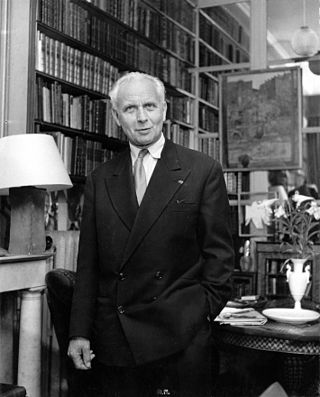
Louis Aragon was a French poet who was one of the leading voices of the surrealist movement in France. He co-founded with André Breton and Philippe Soupault the surrealist review Littérature. He was also a novelist and editor, a long-time member of the Communist Party and a member of the Académie Goncourt. After 1959, he was a frequent nominee for the Nobel Prize in Literature.

Jean Moréas was a Greek poet, essayist, and art critic, who wrote mostly in the French language but also in Greek during his youth.
La Pléiade was a group of 16th-century French Renaissance poets whose principal members were Pierre de Ronsard, Joachim du Bellay and Jean-Antoine de Baïf. The name was a reference to another literary group, the original Alexandrian Pleiad of seven Alexandrian poets and tragedians, corresponding to the seven stars of the Pleiades star cluster.
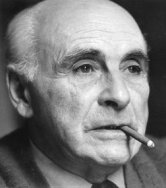
Francis Jean Gaston Alfred Ponge was a French poet. He developed a form of prose poem, minutely examining everyday objects. He was the third recipient of the Neustadt International Prize for Literature in 1974.
French poetry is a category of French literature. It may include Francophone poetry composed outside France and poetry written in other languages of France.
Georges de Brébeuf was a French poet and translator best known for his verse translation of Lucan's Pharsalia (1654) which was warmly received by Pierre Corneille, but which was ridiculed by Nicolas Boileau in his Art poétique.
Nationality words link to articles with information on the nation's poetry or literature.
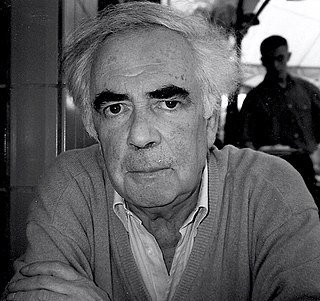
Claude Esteban was a French poet.

Jean Follain was a French writer, poet and corporate lawyer. In the early days of his career he was a member of the "Sagesse" group. Follain was a friend of Max Jacob, André Salmon, Jean Paulhan, Pierre Pussy, Armen Lubin, and Pierre Reverdy. He was a contributor to many journals, such as La Nouvelle Revue française, Commerce, Europe, Le Journal des Poètes and Les Cahiers des Saisons. In 1970, he was awarded the Grand Prize of Poetry from L'Académie française for his life's work. A small part of his archives is conserved at the Musée des Beaux-Arts de Saint-Lô in France. Prix littéraire Jean Follain de la Ville de Saint Lô is a literary award honouring his name and contributions to French literature. He studied law in Paris and became a judge. He died in 1971 in a car accident.

Linda Maria Baros is a French-language poet, translator and literary critic, one of the most powerful new voices on today's poetry scene . She lives in Paris, France.
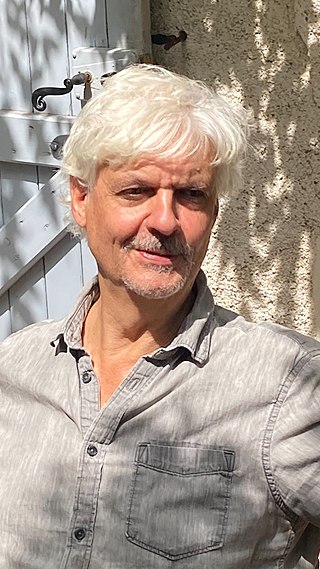
Stephen Romer, FRSL is an English poet, academic and literary critic.
Claude Vigée was a French poet who wrote in French and Alsatian. He described himself as a "Jew and an Alsatian, thus doubly Alsatian and doubly Jewish".

Georges-Emmanuel Clancier was a French poet, novelist, and journalist. He won the Prix Goncourt (poetry), the Grand Prize of the Académie française, and the grand prize of the Société des gens de lettres.
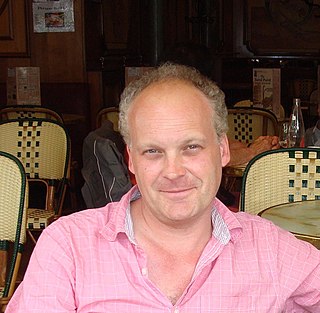
Patrick McGuinness FRSL FLSW is a British academic, critic, novelist, and poet. He is Professor of French and Comparative Literature at the University of Oxford, where he is Fellow and Tutor at St Anne's College.
Yanette Delétang-Tardif was a French poet, translator into French of Spanish and German works, painter and illustrator. She was a very productive and reputed author of poetry, however she appeared sometimes as a restricted poet.
The Prix Renée Vivien is an annual French literary prize which is awarded to poets who write in French. Dedicated to the British poet Renée Vivien, the eponymous prize was first initiated in 1935, and continued intermittently by three different patrons, each with their own vision. First patron was Hélène de Zuylen de Nyevelt de Haar, followed by Natalie Clifford Barney in 1949 then more latterly and currently ongoing from 1994 with Claude Evrard. From each patron, the naming of the award after Renée Vivien was an act of remembrance. Nonetheless, women's poetry, feminist literature and the memories of romantic entanglement with the honoured poet have been inspiring on the first two patrons, who were more alike in their approach to awarding poets, while the heritage of Renée Vivien's style in contemporary poetry interested more Claude Evrard.
Jean Durtal, real name Marie-Charlotte Sandberg-Charpentier was a 20th-century French poet, novelist, and woman of letters.
Frédéric Jacques Temple was a French poet and writer. His work includes poems, novels, travel stories and essays.

Jean-Pierre Siméon is a French poet, novelist, dramatist and translator. Siméon's publications have been awarded various national and international poetry prizes. His poetry and theater works are translated into around fifteen languages. In 2024 Siméon became the third French poet to win the Golden Wreath Award after Eugène Guillevic and Yves Bonnefoy.










